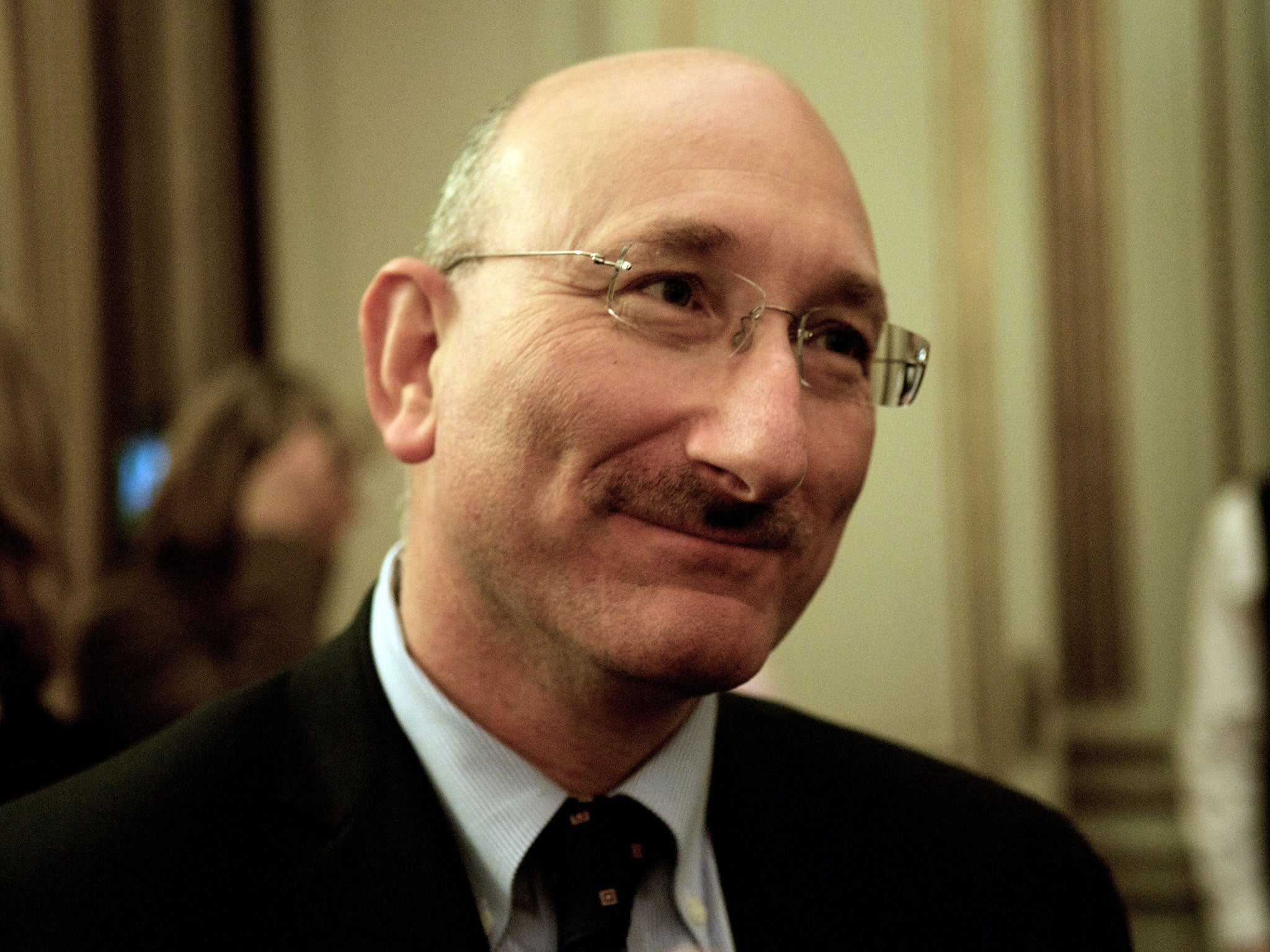David Cesarani: Authority on modern Jewish history whose acclaimed books shed new light on the Holocaust
Cesarani was a founding trustee of the Holocaust Memorial Day Trust, the charity established to commemorate each 27 January the millions of people killed through Nazi persecution and through subsequent genocides

David Cesarani, who has died aged 58 following an operation on his spine, was a leading voice in the field of Jewish historical research, particularly in relation to the Holocaust and postwar responses to it. He was latterly research professor in history at Royal Holloway, University of London, and author of 15 books on aspects of Jewish history. The former Chief Rabbi, Lord Sacks, described him as "our keeper of the conscience of memory".
Cesarani was the lead researcher for the All-Party Parliamentary War Crimes Group (APPWCG), established in 1987 and chaired by Lord Greville Janner QC, which examined allegations that the UK harboured war criminals after 1945, with a view to introducing legislation. As an advisor to the group from 1987 to 1991, he was instrumental in the publication of the Report on the Entry of Nazi War Criminals and Collaborators into the UK, 1945-50 (1988), contributing his vast knowledge of the subject. It remains one of the most important works in this area of historical research.
Another major achievement of the APPWCG was the creation of the Holocaust Educational Trust, established in 1988, one of whose major successes was to ensure that the study of the Holocaust became part of the National Curriculum. Cesarani assisted in the development of educational resources and remained an active supporter and guiding light to the group.
The research undertaken for the APPWCG went on to inform his book Justice Delayed: How Britain became a Refuge for Nazi War Criminals (1992), in which he documents how the immigration policy of Clement Attlee's postwar government actively discriminated against Jewish Holocaust survivors. He claimed that official policy favoured Eastern Europeans who had been active in the German army and police, because they were perceived as useful to the state for intelligence gathering.
In Eichmann: His Life and Crimes (2004) Cesarani drew on newly discovered primary sources to show how the Nazi officer personally supervised the deportation of Jews to extermination camps from 1942 onwards, on the orders of Heinrich Himmler. Since arriving at Royal Holloway in 2004, his research had moved on from examining the implementation and perpetrators of the genocide towards focusing on responses to it post-1945. In 2005 he published After Eichmann: Collective Memory and the Holocaust Since 1960, which challenged the notion that the Holocaust had been mystified in order to serve Jewish interests.
He maintained a vocal opposition to Holocaust deniers such as David Irving and the Austrian Gerald Töben. Cesarani argued in favour of German-style censorship of right-wing views, suggesting that complete freedom of speech helps extreme causes. "These attitudes create a penumbra in which Töben and his ilk can operate with impunity," he wrote. "Or not. Because the German authorities see things differently and now have the legal mechanisms to act even if a person alleged to have broken their laws is on UK territory."
Cesarani was a founding trustee of the Holocaust Memorial Day Trust, the charity established to commemorate each 27 January the millions of people killed through Nazi persecution and through subsequent genocides in Cambodia, Rwanda, Bosnia and Darfur. The chosen date for Holocaust Memorial Day and International Holocaust Remembrance Day marks the liberation of Auschwitz-Birkenau, the largest of the Nazi death camps, in 1945. He was awarded an OBE in 2005 for his efforts towards the creation of Holocaust Memorial Day.
He remained critical of Britain's lamentable postwar record in dealing with war criminals. For example, the War Crimes Act of 1991, which extended the jurisdiction of UK courts to acts committed on behalf of Nazi Germany, was voted down by the House of Lords. The law was only passed through the use of the Parliament Acts, at the time the only occasion these had been used by a Conservative government to force through a law.
Yet despite the passing of the Act and the investigation by the Metropolitan Police of more than 300 cases, only one person, Anthony Sawoniuk – a former policeman in Nazi-occupied Belarus – has been successfully convicted. He was sentenced in 1999 to life imprisonment for murder and died in jail six years later.
In an article published in 2001, Cesarani highlighted the case of Anton Gecas – then still alive and living in Scotland – accused of complicity in war crimes in Lithuania. Cesarani declared, "Despite overwhelming evidence that Britain harbours Nazi collaborators, a significant section of political and legal opinion has stubbornly opposed bringing them to justice." He concluded that, "By requiring prosecutions for murder, rather than denaturalisation and deportation, the War Crimes Act set an almost impossibly high threshold of evidence."
Cesarani was born in London in 1956 to Sylvia and Henry Cesarani, a hairdresser. He was educated at Latymer Upper School in London then went up to Queens' College, Cambridge, gaining a First in history. He had previously worked at the University of Leeds, Queen Mary University of London and with the Wiener Library, which he led as director during the 1990s.
Royal Holloway said in a statement of tribute, "David was a brilliant scholar and an inspirational teacher, supervisor and public lecturer; he was also a man of the highest academic integrity. Those who knew him speak of his warmth and intellectual generosity. He will be enormously missed by all those who loved him, worked with him, studied with or were taught by him."
MARCUS WILLIAMSON
David Cesarani, historian: born London 13 November 1956; married Dawn (one daughter, one son); died 25 October 2015.
Join our commenting forum
Join thought-provoking conversations, follow other Independent readers and see their replies
Comments
Bookmark popover
Removed from bookmarks